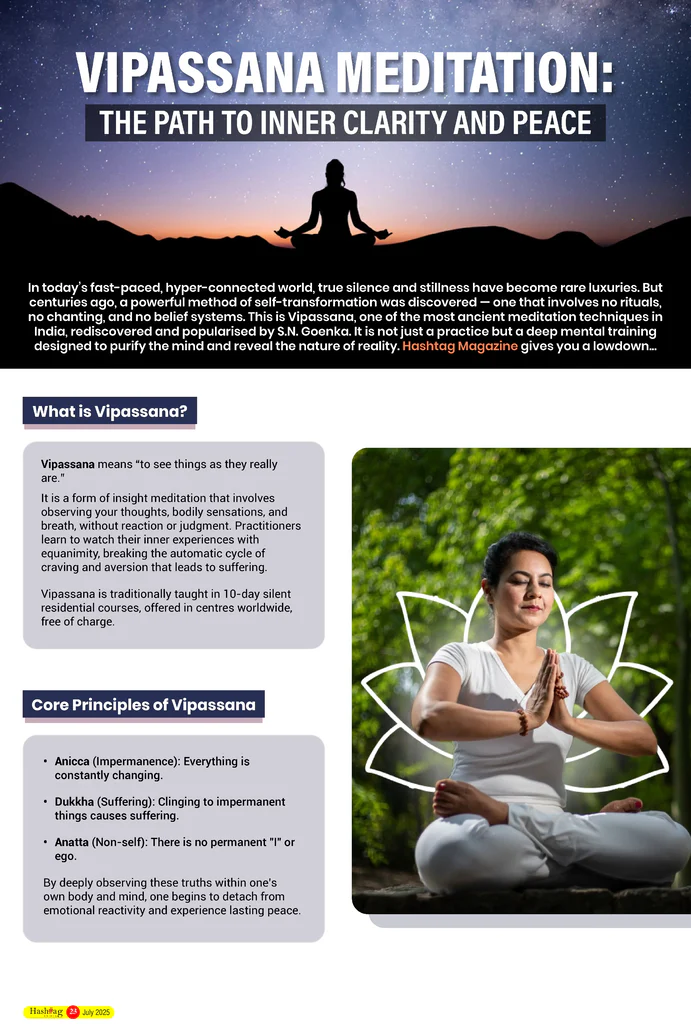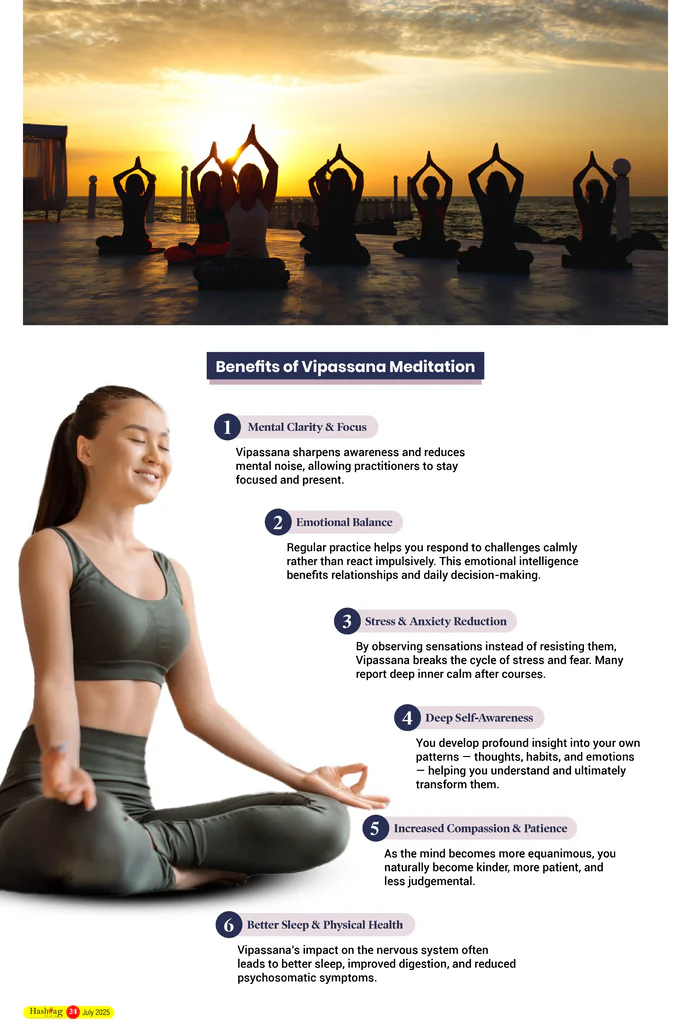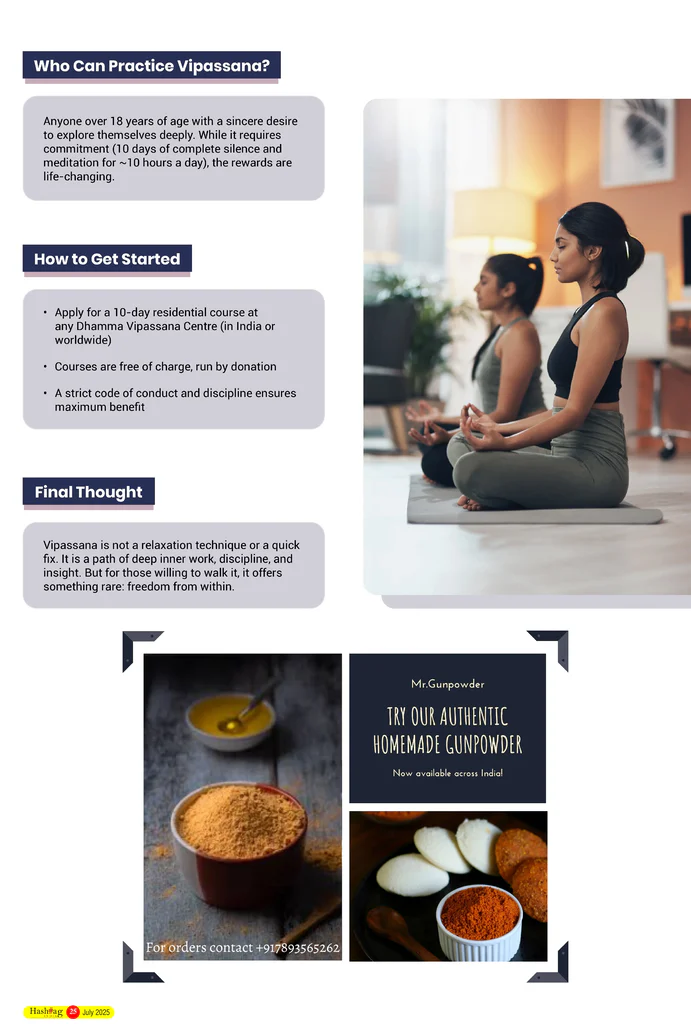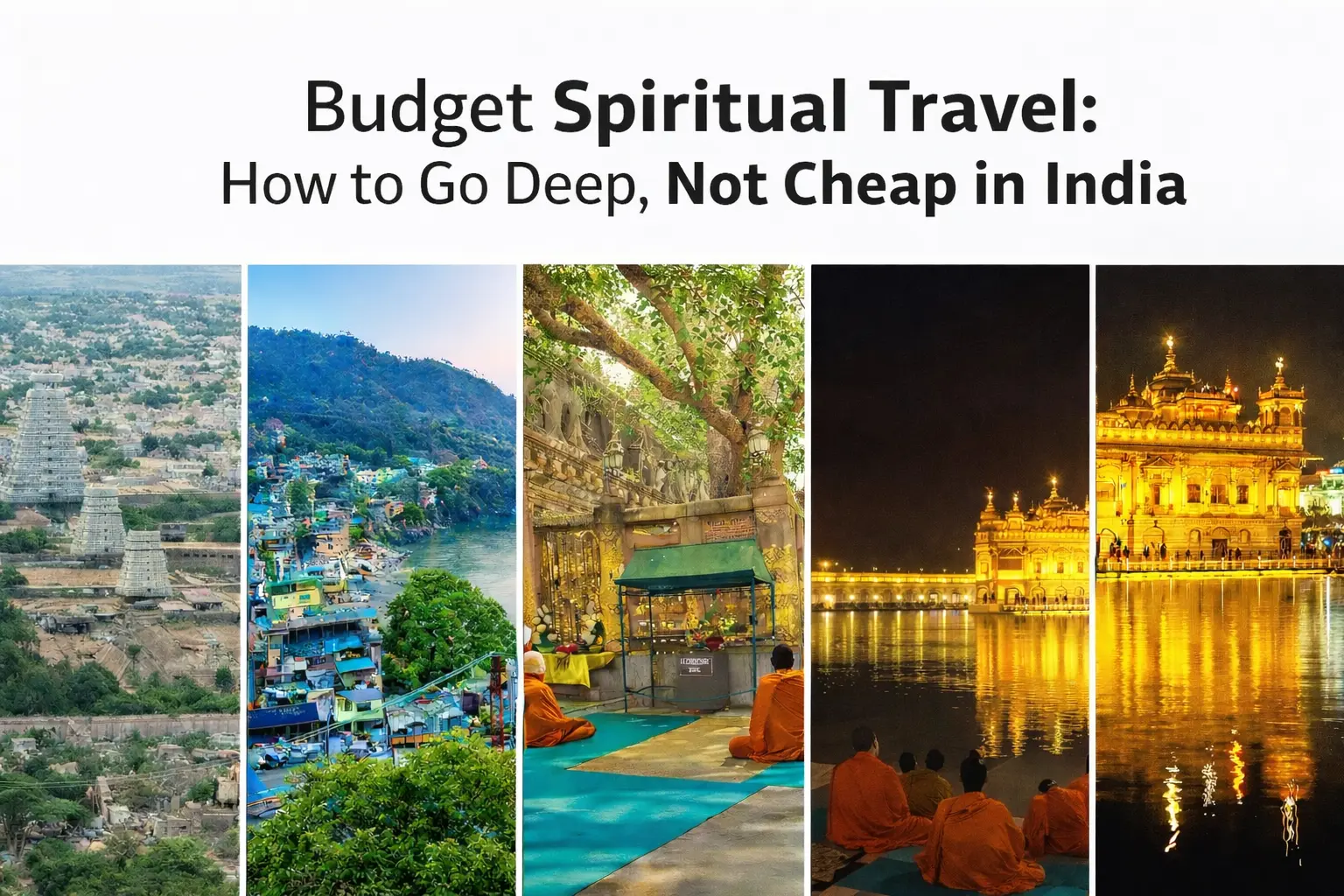Introduction: In today’s fast-paced, hyper-connected world, true silence and stillness have become rare luxuries. But centuries ago, a powerful method of self-transformation was discovered, one that involves no rituals, no chanting, and no belief systems. This is Vipassana, one of the most ancient meditation techniques in India, rediscovered and popularised by S.N. Goenka. It is not just a practice but a deep mental training designed to purify the mind and reveal the nature of reality. Hashtag Magazine gives you a lowdown…
What is Vipassana?
Vipassana means “to see things as they really are.”
It is a form of insight meditation that involves observing your thoughts, bodily sensations, and breath, without reaction or judgment. Practitioners learn to watch their inner experiences with equanimity, breaking the automatic cycle of craving and aversion that leads to suffering.
Vipassana is traditionally taught in 10-day silent residential courses, offered in centres worldwide, free of charge.
Core Principles of Vipassana
Anicca (Impermanence): Everything is constantly changing.
Dukkha (Suffering): Clinging to impermanent things causes suffering.
Anatta (Non-self): There is no permanent “I” or ego.
By deeply observing these truths within one’s own body and mind, one begins to detach from emotional reactivity and experience lasting peace.
Benefits of Vipassana Meditation
1. Mental Clarity & Focus
Vipassana sharpens awareness and reduces mental noise, allowing practitioners to stay focused and present.
2. Emotional Balance
Regular practice helps you respond to challenges calmly rather than react impulsively. This emotional intelligence benefits relationships and daily decision-making.
3. Stress & Anxiety Reduction
By observing sensations instead of resisting them, Vipassana breaks the cycle of stress and fear. Many report deep inner calm after courses.
4. Deep Self-Awareness
You develop profound insight into your own patterns thoughts, habits, and emotions helping you understand and ultimately transform them.
5. Increased Compassion & Patience
As the mind becomes more equanimous, you naturally become kinder, more patient, and less judgemental.
6. Better Sleep & Physical Health
Vipassana’s impact on the nervous system often leads to better sleep, improved digestion, and reduced psychosomatic symptoms.
Who Can Practice Vipassana?
Anyone over 18 years of age with a sincere desire to explore themselves deeply. While it requires commitment (10 days of complete silence and meditation for ~10 hours a day), the rewards are life-changing.
How to Get Started
- Apply for a 10-day residential course at any Dhamma Vipassana Centre (in India or worldwide)
- Courses are free of charge, run by donation
- A strict code of conduct and discipline ensures maximum benefit
Final Thought
Vipassana is not a relaxation technique or a quick fix. It is a path of deep inner work, discipline, and insight. But for those willing to walk it, it offers something rare: freedom from within.




































